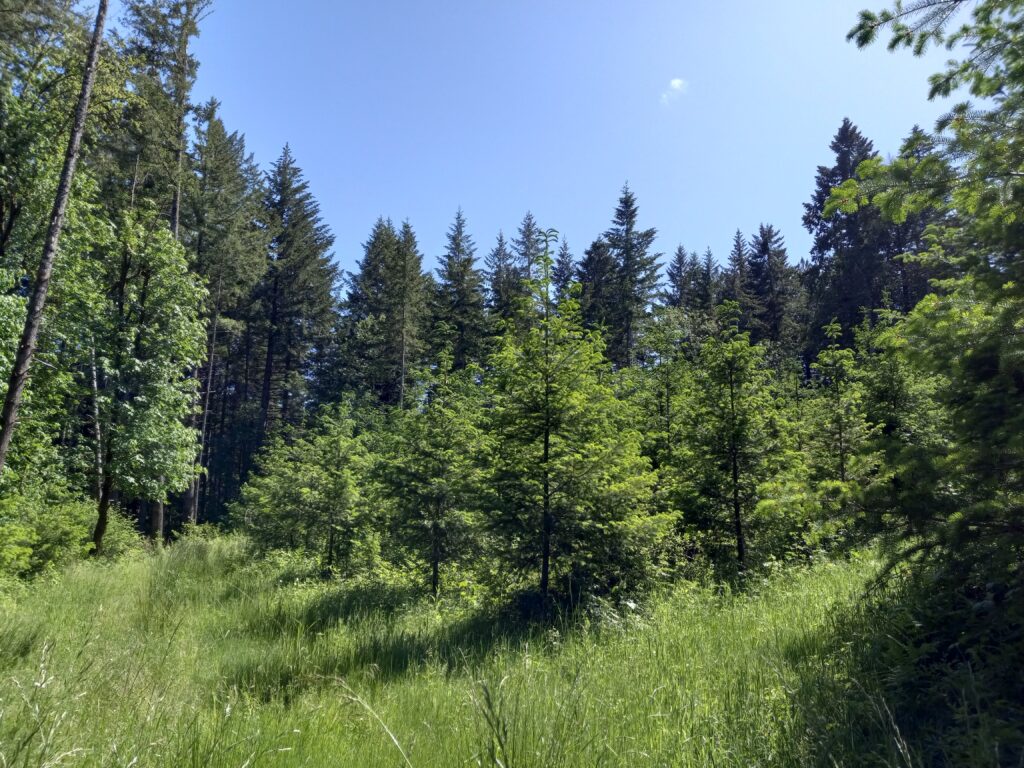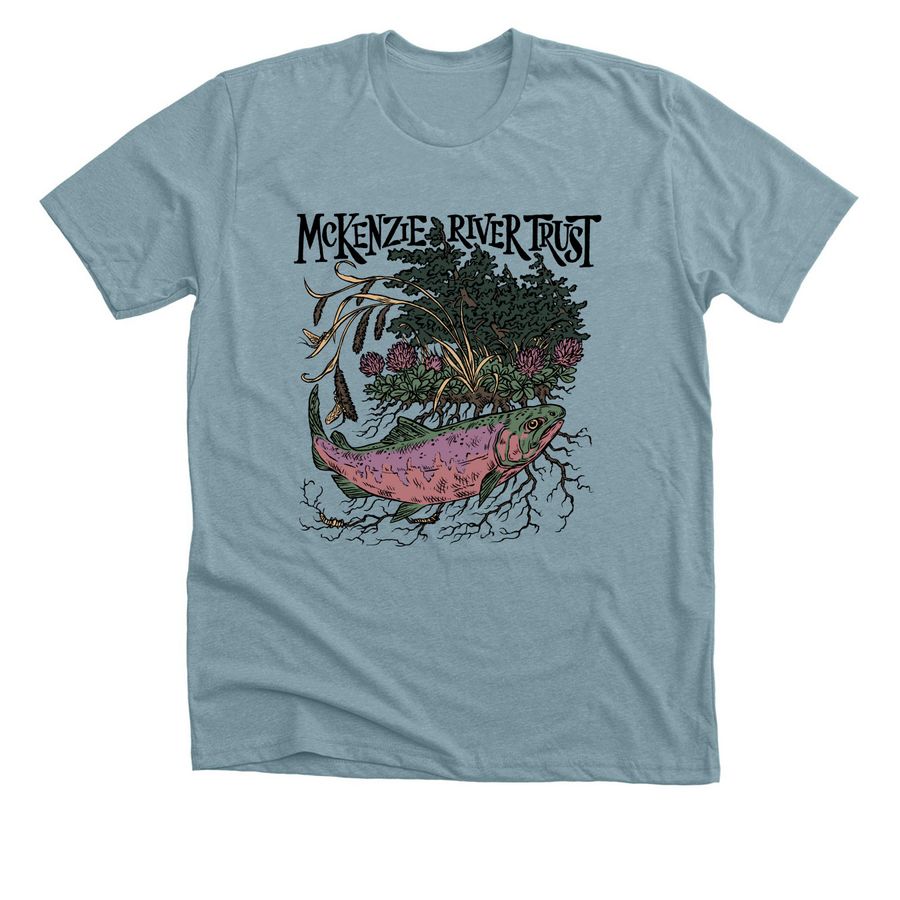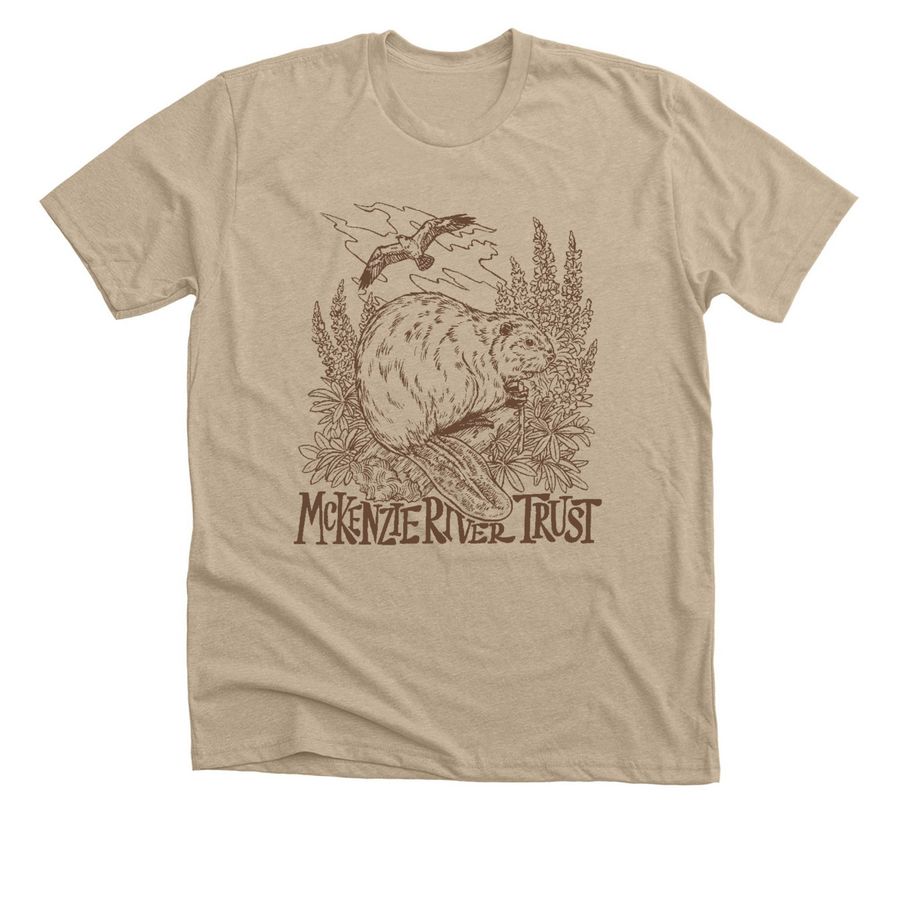Jenny Potter

“Hi, I’m returning your message from a couple days ago,” a woman’s voice says on the phone, “about ordering some rock for John Potter?”
“Yeah, thanks for calling back. I’m his daughter.” My eyes blur and my heart tilts. “He asked me to order a few loads of gravel for our roads.” I laugh at the ridiculousness of this conversation and try to speak. No words come out. I try again, and say hoarsely, “He passed away yesterday. But literally on his death bed, he asked me to order some gravel.”
My parents bought the land when I was ten years old, and it had recently been clearcut. Forty acres of Scotch broom and blackberry vines, with a few small patches of standing trees. The jewels of the place were six old-growth Douglas firs, standing on a steep slope. Too steep to log in the 1930s clearcut or the 1970s. One still has a barely visible scar where someone put in a springboard and started to cut it, but then stopped.
My dad hired some coworkers to help him plant Doug fir seedlings. As they grew, my mom and I helped my dad clear blackberries from around the young trees. We walked the dirt roads through narrow alleyways of Scotch broom covered in stinky yellow blooms. Dad went ahead, whacking away at the invasive shrubs with his brush hook.
As the firs got big enough to become a shady canopy and I left for college, my parents pruned the lower branches. The Scotch broom and blackberries were finally shaded out, and the roads could actually accommodate a car. Dad ordered gravel delivered to make the roads drivable in wet weather. Over time, the rock sank into the mud and had to be replaced with a fresh layer.
I returned from my new home regularly, a 90 minutes’ drive away. I helped my dad plant western red cedar, hemlock, and more Doug fir in areas where he had cleared brush.
Planting season is always in the worst weather: February, in cold fog or rain. I remember once getting soaked through four layers of rain gear, fleece, and long underwear. We sat in the truck to eat lunch, then went back out to do more planting.
We worked together, slowly and carefully. Dad dug the hole. I knelt, reached into the bag, carefully teased the damp roots apart, and tucked the strands into the reddish-brown soil. The dirt was moist and crumbly, like pie crust as you mix in the water, but before it becomes a dough. With the shovel, he gently sifted coarse crumbs of soil into the hole, then closed it up. I threaded a mesh tree protector onto a stick, and guided it over the seedling, as my dad crashed off through the brush to find the next planting spot.
Unlike professional tree planters, who can do 1,000 trees per person in a day, the two of us often just got 15 or 20 done. But as we worked, we talked about our lives, politics, religion, or what we were reading. We stopped to clear brambles from older seedlings, or to admire the big trees. We looked for interesting things to take home for my mom: a deer bone, an impressive strand of lichen, a pretty rock.
Multiply that by years of winter tree planting, springs of adjusting tree protectors as the leaders sprouted upward, summers of lugging old milk jugs full of water to help the seedlings make it through drought, autumns of watching the sun glowing through yellowish-brown stained-glass windows of big leaf maple leaves. Before you know it, Dad was 83 and asking me to order gravel that he wouldn’t live to see delivered.
That was two years ago. Last week, Mom and I were out there in a chilly mist, cutting and pulling Scotch broom. The seeds can lie dormant in the soil for 30 years or more, then germinate as soon as the overstory is cut. The Doug firs on this south slope were dying of laminated root rot and had to be cleared. Now the Scotch broom is back and threatening the new incense cedar and pine seedlings that we hired someone else to plant. Mom is well into her 80s, but she was beside me with her clippers and her gloves.
As I turned the car around after a couple hours of work, the tires spun on soggy maple leaves until they hit the gravel in the road and gained traction.
“I’m sure glad we have rock on these roads,” Mom said. With a lump in my throat, I agreed.






